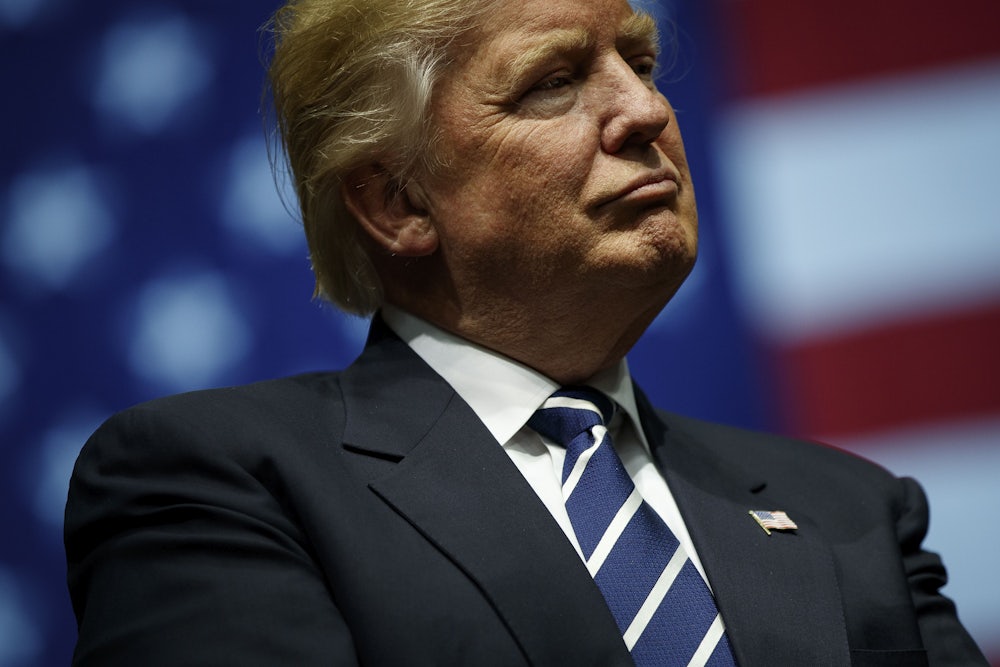Donald Trump isn’t even president yet, and already he’s fighting with the intelligence community. After The Washington Post reported Friday that the CIA believes Russia interfered in the U.S. election specifically to help Trump win, his transition team released a statement on Friday saying, “These are the same people that said Saddam Hussein had weapons of mass destruction.” Trump, who earlier had told Time that the email hacks of the Democratic National Committee and top Hillary Clinton aide, John Podesta could have been done by China or “some guy in his home in New Jersey,” on Monday assumed the role of cybersecurity expert:
Unless you catch "hackers" in the act, it is very hard to determine who was doing the hacking. Why wasn't this brought up before election?
— Donald J. Trump (@realDonaldTrump) December 12, 2016
“Mr. Trump, who has taken intelligence briefings only sporadically, is questioning not only analytic conclusions,” The New York Times noted over the weekend, “but also their underlying facts.” Former CIA Director Michael V. Hayden, who served under President George W. Bush, spoke for many in world of spooks by exclaiming to the Times, “To have the president-elect of the United States simply reject the fact-based narrative that the intelligence community puts together because it conflicts with his a priori assumptions—wow.”
Trump’s response to this controversy has ramifications well beyond the factual question of whether the CIA is right or not about Russia’s role and intent in the email hacks. As president, Trump will be in charge of the very experts whose authority he’s currently undermining. His willingness to disbelieve factual findings could not only marginalize the intelligence community, but politicize their intelligence—the dangerous consequences of which are all too familiar to Americans.
The Trump transition’s reminder of the government’s false claims about WMDs in Iraq is especially instructive, for reasons the transition team surely didn’t intend. After all, the CIA didn’t come to those faulty conclusions on its own, but rather were pushed there by the Bush administration, particularly Vice President Dick Cheney, who aggressively cherry-picked evidence to back his prior convictions. As the National Security Archive notes, “Vice President Richard Cheney questioned his CIA briefers aggressively, pressing them to the wall when he saw intelligence from other agencies that portrayed a more somber picture than that in CIA’s reporting.” Secretary of Defense Donald Rumsfeld was active in pushing the intelligence community to come up with findings to justify the push for war, creating the Office of Special Plans to challenge CIA skeptics and force them to toe the Bush administration line on Iraq.
There is genuine reason to fear that this sort of politicization of intelligence will be replicated by the Trump administration. John Bolton, a major figure in the Cheney circle during the Bush administration, has resurfaced as an advisor to the Trump transition team and reportedly is up for the position of deputy secretary of state. He also shares Trump’s desire to discredit the CIA’s report on the election.
“It’s not at all clear to me just viewing this from the outside that this hacking into the DNC and the RNC computers was not a false flag operation,” Bolton told Fox News reporter Eric Shawn on Sunday. Shawn was taken aback. “When you say false flag, that’s a very serious charge,” he said. “False flag by whom?” Bolton, replied, “We just don’t know, but I believe that intelligence has been politicized in the Obama administration to a very significant degree.”
From Bolton’s words, it’s not clear whether he’s hypothesizing that the false flag operation was done by the Obama administration or by some third nation other than Russia. What is clear is that, like Trump himself, he’s willing to cast aspersions on intelligence he hasn’t even read. Given his history—such as when he falsely claimed, in 2002, that Cuba was developing a biological weapons program which could be shared with terrorists—there’s a genuine danger that he’ll use his office to do what he accused the Obama administration of doing: politicizing intelligence.
On Face the Nation on Sunday, Kellyanne Conway, senior advisor to Trump, said that her boss “absolutely respects the intelligence community. He has made very clear he is going to put his own people in there as well.” That last point is crucial. As president, Trump will be the boss of the intelligence community, and he will pick the people to run it. The agencies with which he’s fighting will have to obey him and his appointees—figures like Bolton.
The Bush/Cheney years have already shown us how dangerous the politicization of intelligence can be. It can undercut factual information that’s vital national security, while elevating unfounded claims that support a preexisting narrative or desired outcome; it can lead, in other words, to disastrous wars. With Trump, we will see a president already at odds with the intelligence community and who will try to bend it to his will, with fearful consequences for America.
